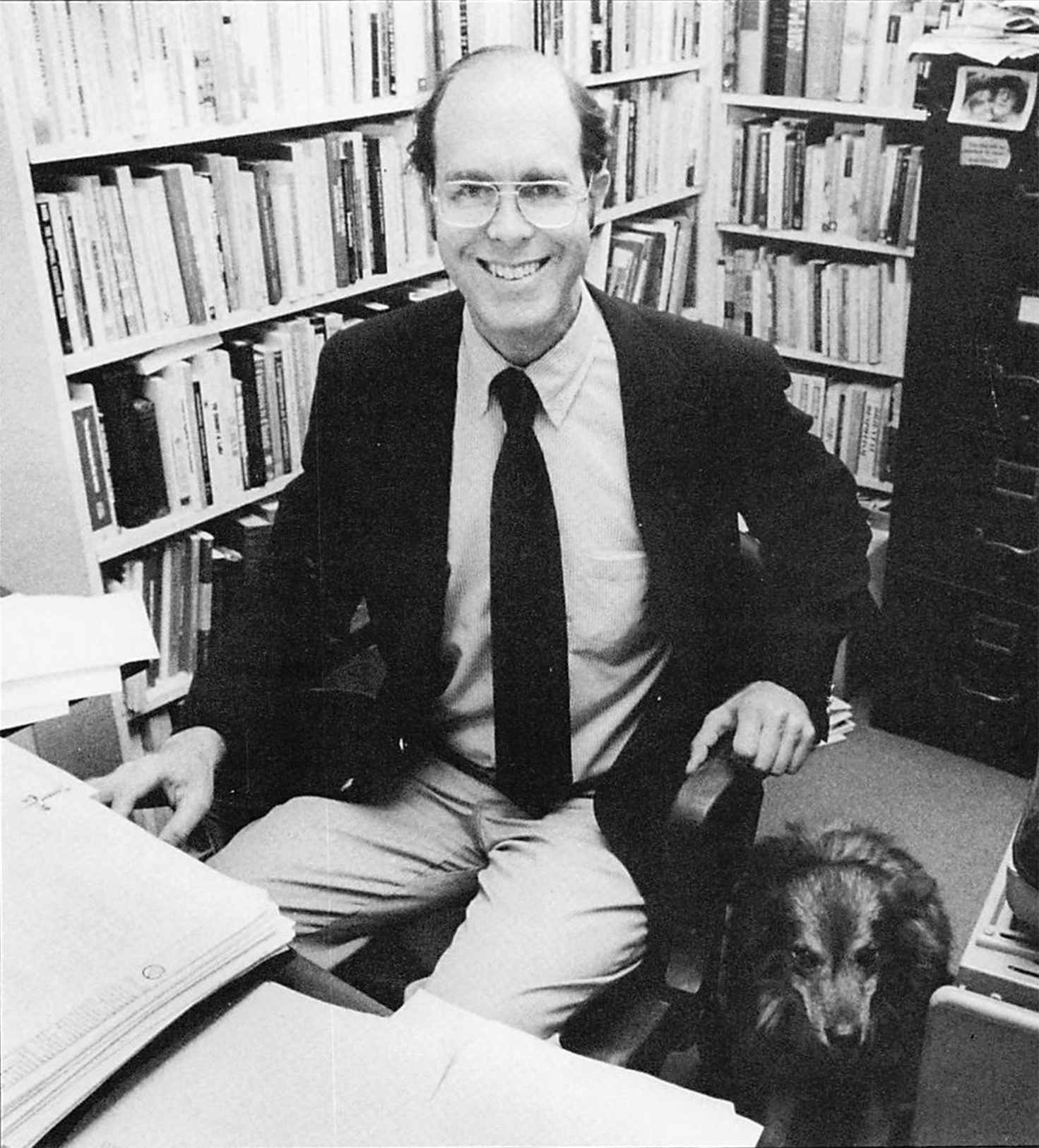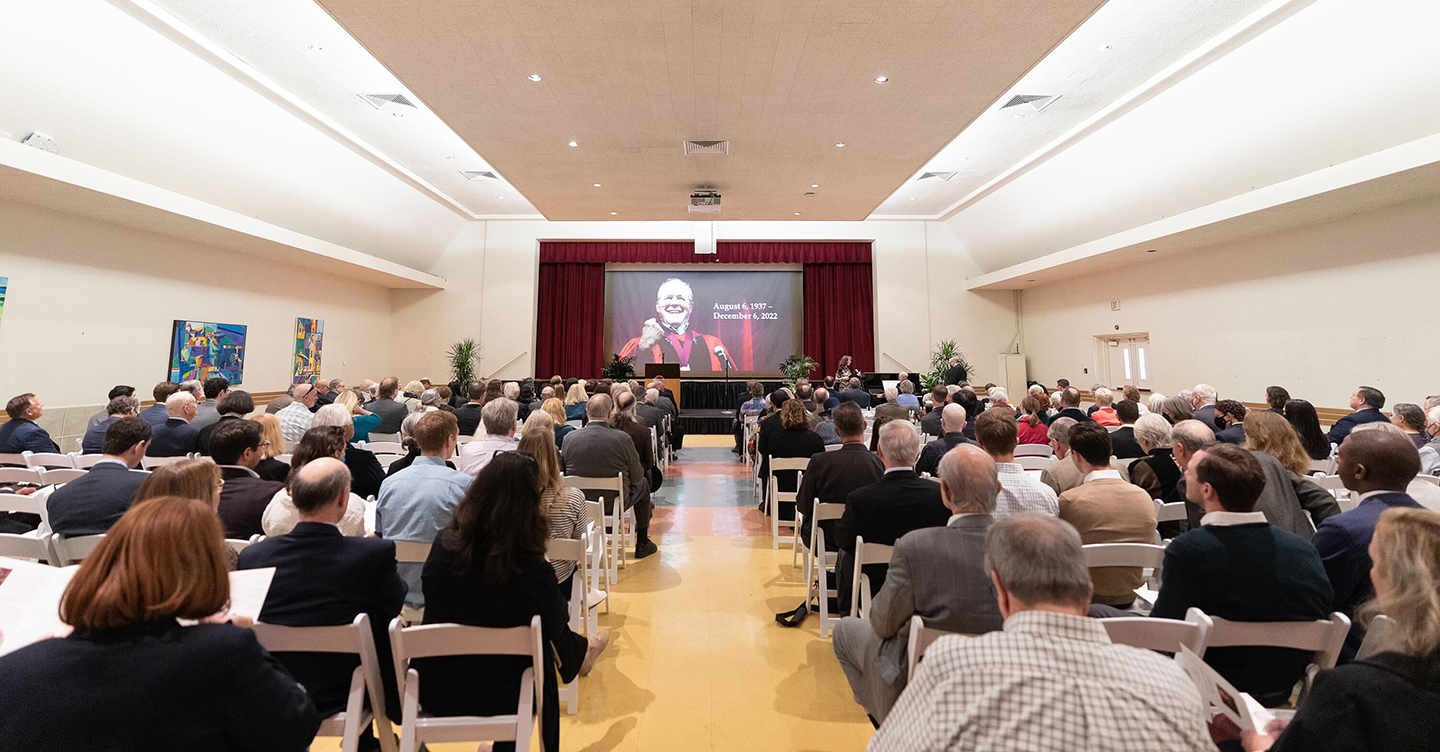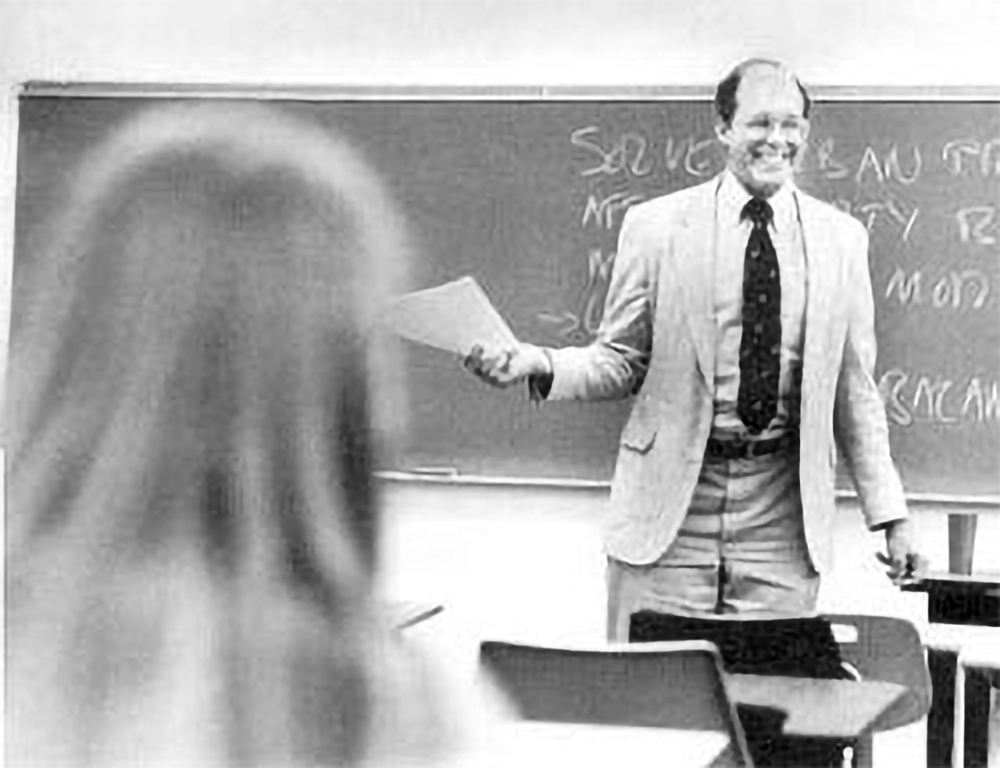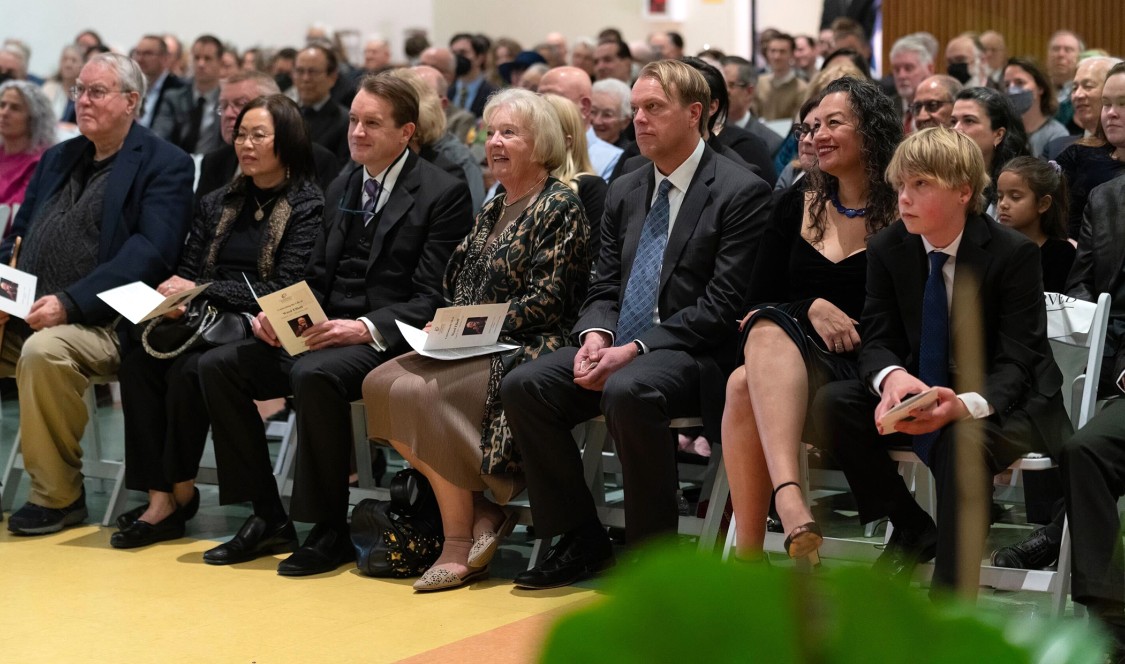Ward, Our Bard
(i)
He, born to explore
our US constitution
Shakespeare trails rapids
(ii)
“Forgive us our debts”*
Ward, Here’s to you, man,
exemplar, giant
(iii)
patriot, loyal
national servant, vet to
the liberal arts
(iv)
open polyglot
the ear to hear other minds
out of many, one
(v)
Polymath of law
history, philosophy,
policy science
(vi)
the provocations
the most outrageous questions
cutting to the bone
(vii)
of infanticide
who here a serial killer
what-ifs, and why-nots
(viii)
freedoms in our rights
the love-sparing arguments
writing through darkness
(ix)
new policy to
cut through Mount Baldy’s smog
enjoin our asthma
(x)
The computer’s Bard:
who authored that Shakespeare
and why we should care
(xi)
meals, Collins, the Ath
breaking bread and assumptions
mentor to us all
(xii)
His kind of Kipling
thoughts not his aim, fulfilling
each sixty seconds
(xiii)
to Ward, all counted
he took on the greatest and
none counted too much
(xiv)
He spoke with the crowds
He walked with CMC kings
and kept common touch**
(xv)
serious, humor
opened our monkey barrels
quips, pianos, songs
(xvi)
he drew us in, we
planets, Myrna-Ward our star.
We revolved ‘round them
(xvii)
is he really gone?
No, he is fully with us
poly – omni - here!
(xviii)
as if Myrna were
Ward’s non-tragic Juliet
she would speak these lines:
(xix)
Now that Ward has died,
take him, cut him out into
very little stars
(xx)
he will make the face
of heaven so fine, all the world
will be in love—will
(xxi)
be in love with night,
and no longer pay worship
to the garish sun. ***
- CMC President Hiram E. Chodosh
*Matthew 6:12
**Adapted from Rudyard Kipling’s If: A Father's Advice to His Son
*** From William Shakespeare’s Romeo and Juliet Act III, Scene II
In a poignant, on-campus celebration full of tears, laughter, and music, beloved Claremont McKenna Professor Ward Elliott was honored and remembered as an inspiring educator and colleague, prolific scholar, tenacious adventurer, and devoted family man.
The song-filled homage to Elliott, who passed away on Dec. 6, 2022, was held at McKenna Auditorium on Feb. 11, 2023, and included a reception at the Marian Miner Cook Athenaeum, attended by CMC luminaries, such as former CMC President Jack Stark '57 GP'11 and wife Jil ’58 GP’11; faculty colleagues, alumni, family members, and friends. The celebration culminated in a joyful singing party around the Ath piano. The ceremony was also live-streamed so that alumni and friends could tune in from around the globe.

The inclusive, harmonious gathering was a fitting way to remember Elliott, who famously hosted regular singing parties at his nearby home, affectionately known as “Toad Hall.” “He’d walk around the campus, and as he passed people he’d say, ‘Singing party, Friday night,’” his wife Myrna recalled in her tribute. “And we would generally get 50 to 60 students a night because we conveniently lived three blocks from the campus!”
In addition to Myrna and sons William and Christopher, the memorial featured remarks from CMC Prof. Paul Hurley; alumni Ed Heidig ’75, Jake Zimmerman ’96, and Erik Hansell ’09; and President Hiram E. Chodosh. CMC Ambassador-at-Large John Faranda ’79 provided welcome remarks.
Hurley, the Edward J. Sexton Professor of Philosophy, spoke about “the extraordinary impact of Ward as a teacher” and of the PPE (Philosophy, Politics, and Economics) program, which Elliott co-founded in 1985 with CMC Professors Gordon Bjork and John Roth.
Elliott was an inaugural professor in the PPE program, which he developed out of love for his students, “teaching the whole person and fostering the kind of deep interactions with and among students that would equip them to flourish,” Hurley said. He also noted that Elliott built “a community of trust and shared purpose” among PPE students, who have achieved “dazzling outcomes.”
“But it is hard to capture what made Ward such a great teacher and his program so special, without saying a little bit about what made Ward so special,” Hurley acknowledged. “So many people these days aim for the most: the most money, the most prestigious position, the most power. Or for the next: the next big promotion, or the next hoops to jump through. Ward aimed for the best. He identified things that were both meaningful in their own right and important to him: family, teaching, music, intellectual inquiry, friendship — and strove to pursue them.”
Ed Heidig ’75, senior tax attorney at the California State Board of Equalization, described Elliott as an “egalitarian” who taught Heidig that CMC was a place where “ideas mattered, and that they had consequences,” while noting the “Elliot corollary” was also that “you can have fun with them.”
Heidig paid tribute to Elliott’s achievements on the 1990 Federal Clean Air Act. “He did most of the writing … and the smog-free skies we enjoy in Southern California are a great Ward Elliott contribution,” he said.

Jake Zimmerman ’96, characterized Elliott’s teaching of Gov. 20, as a “big gift to our community because that's where he gave generations of us our first glimpse into real academic inquiry or debate. I assume I'm not alone in this room when I say that I owe much of my own life's journey to Ward's kindness and his generosity and his wisdom.”
Zimmerman, who is St. Louis county assessor, continued: “In Judaism, we remember those who are gone with the hope that they live on not as a memory, but through the good works of those who are still alive and those who are acting in their name. And I would challenge anyone in this room to think of someone whose life is more likely to pass that test than the life of Ward Elliott.”
Erik Hansell ’09 recalled the first questions he received from Elliott, who was Hansell’s academic adviser, at freshman orientation: “Who is your hero? And what is your cause? He wanted to get to know us.”
Hansell recounted how Elliott “would not prefer immortality to death. Part of Ward’s beauty was that — at some level— he had an energy that he knew this adventure would not last forever. We had to savor every moment together…our cause is now to live up to his example.”
Myrna, Elliott’s wife of 53 years, provided the audience with details of Elliott’s family history, as well as insights into their partnership. She recounted how shortly after Jil Stark introduced them, he proposed marriage. Four months later, they were wed. “We were indeed a perfect complement for each other. He thought I was very loving. I thought he was very lovable,” she said. “He liked to think about things. I like to make things. He wanted a welcoming home. I wanted to create a warm and beautiful one. He liked to connect with interesting people. I like to entertain them. He was an introvert. I was an extrovert.”
While noting that learning of her husband’s introversion may surprise those in attendance, Myrna detailed how Elliott overcame his social awkwardness. “He always sat with students in Collins Hall, or at the Athenaeum because he really considered it part of his job description,” she said. “He drew students out by asking, ‘What is the common denominator of this group? What is your signature song? What are your goals? Who is your hero?’ And if he knew a song using one of your names, he just might burst into song.”
Myrna also described Elliott’s passion for adventure. “For our honeymoon, Ward suggested that we raft the Eel River in northern California. It was isolated, wildly beautiful,” she said. During that challenging trip, she recalled thinking to herself, “this guy can do anything and is prepared for anything” and, “this wasn't going to be the only time I'd have to do something new.”
“Over the years we had many adventures, mostly off the beaten track,” she said, which included rafting down rivers for every letter of the alphabet, “and we got to all of them except one.”
“Anyone who connected with Ward was changed by him,” she continued. “He enlarged your world. He gave you confidence and purpose. He taught you to love life and to give back. He was a touchstone, there when you needed him. He will always be there for us in our hearts and minds.”

William Elliott recalled how multiple times a year when the doorbell on his family house, “Toad Hall,” would ring, and standing on their front porch would be alumni, “sometimes young, sometimes old” seeking his father. He described his dad as someone who, even as his life was ending, “was curious to see what was coming next.”
William also shared a few of the lessons he learned from his father, including: “Don't waste a minute living a life that you don't love,” and, “Love your kids. Be there for them as reliably as the sun rising in the morning.”Assemble all of his father’s qualities, and, “It's easy to see why this isn't a funeral. It's a celebration of a life well-lived,” William said.
When it was his turn to speak, son Christopher described his father as happy to head into his office every day of his life. “And that's a great lesson from my father's life is to find out what you care about. Find out what your passion is, find a way to incorporate that into your career, and it will never feel like work. And you will be happy every day,” he said. He then produced a guitar and sang his own composition, “My Dad is My Hero,” which paid tribute to his father as a practical man, who never had to impress anyone who was “the smartest dude ever… and taught me the best things in life.”
“That was the most moving set of tributes I’ve ever seen at any event of this nature,” said President Chodosh, as he took the stage to conclude the ceremony.
“Our hearts break and empty, but only for a moment, before they fill quickly back up with beats of CMC red for our royal Elliott family,” he said. “We are sad today. The end of a CMC era. We are moved today. Ward as inspiration for our next.”
Chodosh noted that there was so much to love about Elliott, including, “His brilliance. His warmth. His spirit. His loyalty. His wit. His accomplishments across so many domains that elude reduction.”
However, Chodosh said he most loved how “Ward understood. That we love hard questions…. That the Ath is our temple….That policy can save lives. That patriots serve and sacrifice for freedom. That we can’t live if we can’t breathe the air. That achievement is a steep climb, a Roth-like, Sisyphean joy, about which never to complain. That life is a white water rapid, one that requires courage and vision and adaptability to the unseen rocks and self-rescue from unplanned dumps. That song brings us together….”
Chodosh then shared a moving poem of 21 haikus that he composed in Elliott’s honor, “Ward, Our Bard.” (See sidebar.)
The program closed with a rousing rendition of the spiritual, “Swing Low, Sweet Chariot,” led by Charles Kamm, associate professor of music and director of choirs, joint music program of CMC, Harvey Mudd, and Scripps; Elizabeth Morgan, registrar and associate vice president for academic affairs; Ellen Rentz, associate dean of the faculty for curriculum and associate professor of literature; and Nancy Williams, associate professor of chemistry. Earlier in the program, the quartet also performed “La Golondrina” — which Myrna said “had special meaning for Ward” — while Morgan sang the opening song, “The Lord’s Prayer.”
- To watch the celebration, please visit here.
- To learn more about the life of Prof. Ward Elliott, read CMC’s In memoriam: Professor Ward Elliott, a true renaissance man
- To make a gift in honor of Prof. Elliott, his family asks that all donations be directed to the College’s PPE program through the CMC Giving page. Please contact Bob Knuth at [email protected] with any questions.

